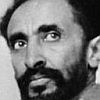
Since 1917, people born in Puerto Rico are U.S. citizens. As such, they are entitled to vote at the federal level, but not from the island, as the territory is not incorporated. The legal restriction to vote at the federal level extends only to the territory, not to its citizens. In this fashion, all U.S. citizens can vote at the federal level from any part of the world or incorporated territories of the U.S. By the same token, no U.S. citizen may vote at the federal level if they reside in Puerto Rico, although they can vote at the "state" (local) level. Most Federal level taxes do not apply to island residents, as taxation is one of the powers delegated to the local authorities. See also: Voting rights in Puerto Rico
Puerto Rico is an "unincorporated territory" of the United States which according to the U.S. Supreme Court's Insular Cases is "a territory appurtenant and belonging to the United States, but not a part of the United States."[33] Puerto Rico is subject to the Congress’ plenary powers under the territorial clause of Article IV, sec. 3, of the U.S. Constitution.[34] U.S. federal law applies to Puerto Rico, even though Puerto Rico is not a state of the American Union and has no voting representative in the U.S. Congress. Due to the establishment of the Federal Relations Act of 1950, all federal laws that are "not locally inapplicable" are automatically the law of the land in Puerto Rico.
фром вики